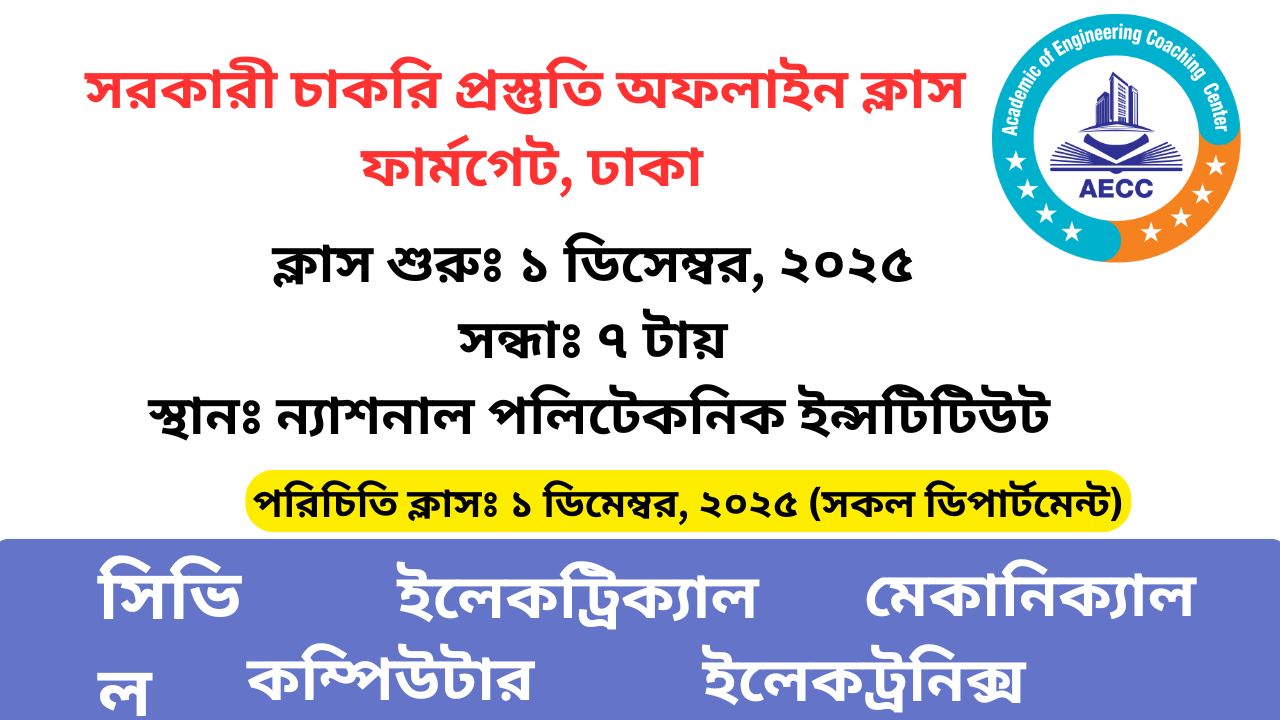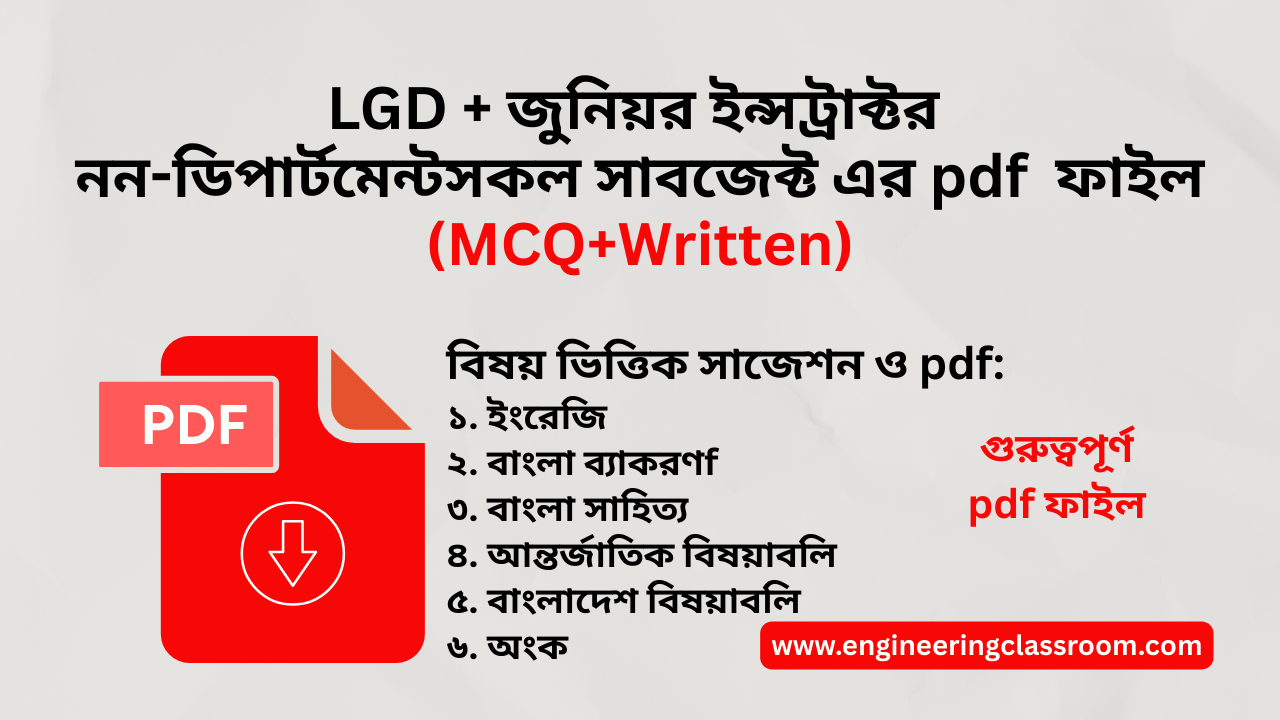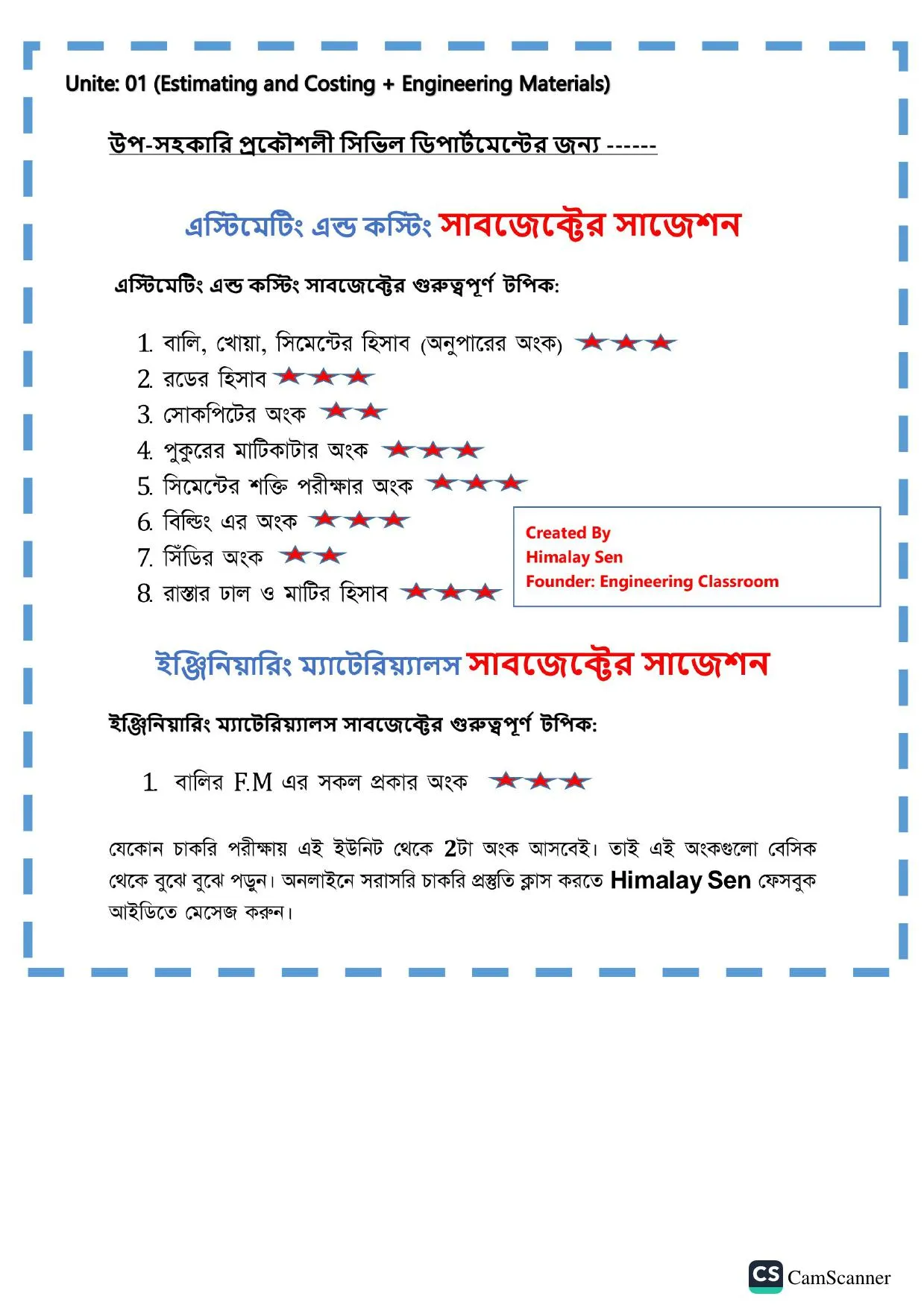MCQ
1761. He said, 'Let us wait for the award.'
He proposed that they should wait for the award.
He suggested that they should wait for the award.
The argued that they should wait for the award.
He opted that they will wait for the award.
ব্যাখ্যা: Let us যুক্ত imperative বাক্যকে indirect narration করার structure হলো sub + proposed + that + they + should + reported speech এর main verb থেকে শেষ পর্যন্ত। সুতরাং বাক্যটির সঠিক narration হলো: He proposed that should wait for the award.
1762. He said to me, 'Do you know me? Its indirect speech is :
He asked me if I know him
He said do I know him
He asked me if I knew him
He asked me if did know him
ব্যাখ্যা: Wh question বিহীন interrogative বাক্যের indirect narration-এর ক্ষেত্রে if বা whether ব্যবহৃত হবে আর present indefinite tense-এ থাকলে তা past indifinite tense হবে এবং reporting verb said, asked-এ রূপান্তরিত হবে। সুতরাং সঠিক indirect narration- He asked me if I knew him |
1763. The indirect speech of: He said to me, 'Which book do you want'?
He said to me which book he wanted
He asked me which book I wanted
He asked me the book I wanted
None of these
ব্যাখ্যা: Who question যুক্ত reported speech-এর indirect speech-এর structure : Sub + asked + ob + which question + reporting verb-এর sub/ob অনুযায়ী sub + verb-এর পরিবর্তিত রূপ। সুতরাং সঠিক indirect speech হলো: He asked me which book I wanted |
1764. Convict: Imprisonment::
Prisoner: Court
Exile: Banishment
Delinquent: Orphanage
Student: School
ব্যাখ্যা: Hints: Convict (আসামি)-কে শাস্তিস্বরূপ দেয়া হয় imprisonment (কারাদণ্ড) ঠিক তেমনি exile নির্বাসিত ব্যক্তিকে শাস্তি স্বরূপ দেয়া হয় banishment (নির্বাসন)।
1765. I said to him 'Do you hear me?' The indirect form is :
I told him if he heard me.
I wanted to know if he heard me.
I asked him if he hear me.
I asked him if he heard me.
ব্যাখ্যা: Wh question বিহীন interrogative বাক্যটির indirect speech : I asked (interrogative বাক্য হওয়ায়) him if he (you কেfollow করে) heard (past tense-এ রূপান্তর) me ( I কে follow করে)।
1766. 'Are you happy in your new job.' The correct speech is-
He told me whether I am happy in my new job.
He asked me if I had been happy in my new job.
He asked me if I have been happy in my new job.
He asked me if I was happy in my new job.
ব্যাখ্যা: Present indefinite যুক্ত wh question বিহীন বাক্যকে indirect narration-এ রূপান্তরিত করতে if বসিয়ে past indifinite tense-এ রূপান্তর করতে হবে এবং reporting verb-এর sub এবং ob-কে অনুসরণ করে reported speech-এর sub এবং pronoun গুলোর রূপ পরিবর্তন হবে। সুতরাং সঠিক indirect speech টি হলো : He asked me if I was happy in my new job .
1767. I said to him, 'Why are you working so hard'? What is the indirect form of the sentence?
I asked him why he was working so hard.
I asked him why was he working so hard.
I asked him why had he been working so hard.
I asked him why he had been working so hard.
ব্যাখ্যা: Wh question যুক্ত present continuous বাক্যের indirect narration past continuous tense-এ হবে এবং assertive বাক্যে রূপান্তর করতে হবে। Reporting verb- এর sub এবং obj অনুযায়ী reported speech-এর sub এবংobj পরিবর্তন করতে হবে। সুতরাং প্রদত্ত বাক্যটির indirect speech হলো: I asked him why he was working so hard |
1768. Conscious: Careless
careful: ugly
generous: unkind
graceful: ugly
careful: indifferent
ব্যাখ্যা: Hints: Conscious এর antonym হচ্ছে careless এবং careful এর antonym হচ্ছে indifferent
1769. He said to me, 'Do you know me?'
He asked me if I know him.
He said do I know him.
He asked me if I knew him.
He asked me if I had known him.
ব্যাখ্যা: Yes অথবা no interrogative বাক্যে indirect speech এ if ব্যবহৃত হয়। Reporting verb asked এ রূপান্তরিত হয় আর present indefinite tense past indefinite tense এ রূপান্তরিত হয়। Reported speech-এর sub এবং ob, reporting verb-এর sub এবং ob অনুযায়ী পরিবর্তিত হয়।
1770. Teacher said to me, 'May God bless you'. Choose the correction of indirrect speech.
Teacher wished so that may God bless me.
Teacher prayed so that may-God bless me.
Teacher prayed that God might bless me.
Teacher wished that God might bless me.
1771. He confessed with regret that he had been very foolish. (Make it direct)
He said, 'Alas! How foolish I have been?'
He explained, 'Alas! How foolish I have been?'
He said, 'Alas! How foolish I was?'
He explained, 'Alas! How foolish I was?'
1772. The indirect speech of: He said to her, 'What a cold day!' is -.
He told her that it was a cold day.
He exclaimed sorrowfully that it was a cold day.
He exclaimed sadly that it was a cold day.
He exclaimed that it was a very cold day.
ব্যাখ্যা: প্রদত্ত exclamatory বাক্যের indirect narration-এর structure হবে : Reporting verb-এর sub + exclaimend + that + it + reporting verb-এর tense-কে follow করে was + a + very + adjective + noun। সুতরাং সঠিক indirect form হলো: He exclaimed that it was a very cold day.
1773. Choose the correct indirect speech of the following sentences: He said to me, 'Are you ill?' I replied, 'No'.
He asked me if I was ill. I replied that I was not.
He asked me if I was ill. I replied that I was.
He asked me that I am ill. I replied that I was.
He asked me that I am not ill. I replied I was not.
1774. Water: Flood::
Wind: Sleet
Rain: River
Ice: Floe
Snow: Blizzard
ব্যাখ্যা: Hints: অত্যধিক water হলে তা flood-এ পরিণত হয় ঠিক তেমনি অত্যধিক snow পড়াblizzard (তুষার ঝড়) নামে পরিচিত।
1775. Curdle: Milk
clot: blood
brew: coffee
change: oil
flow: water
ব্যাখ্যা: Hints: দুধ (milk) জামে যাওয়া হলো Curdle আর রক্ত বা Blood জমে যাওয়া হলো Clot
1776. 'Please don't go away' he said.
He said please him and not to go away.
He told me not to go away.
He begged that I not go away.
He begged me not to go away.
1777. He said, 'Do not be upset, I will help you'. The indirect speech is
He said to him not to be upset and said that he would help him.
He said that did not upset I would help you.
He asked not to upset he would help him.
He asked not to upset be will be helped him.
ব্যাখ্যা: Negative imperative বাক্য indirect এ not to + verb-এর base form এবং reported speech-এর sub এবং ob reporting verb-এর sub এবং ০৮ অনুযায়ী পরিবর্তিত হয়। সুতরাং সঠিক indirect speech হলো: He said to him not to be upset and said that he would help him.
1778. He said to me, 'Who has done the work?'
He asked me who did the work.
He asked me who had done the work.
He asked me by whom was the work done.
He asked me who the work had done.
ব্যাখ্যা: Interrogative বাক্যকে indirect করতে reporting verb asked এ রূপান্তরিত হয় আর interrogative speech-এর structure হবে who + had done (present perfect এর স্থলে past perfect) + বাকি অংশ। সুতরাং সঠিক পরিবর্তিত speech হলো He asked me who had done the work.
1779. He asked her, 'How long have you lived here?'
He asked her how long she lived there.
He asked her how long she lived there.
He asked her how long she had lived there.
He asked her how long she had been living there.
1780. 'I can play ten musical instrument', she-
boasts
pleaded
shouted
demanded
ব্যাখ্যা: দাবী করা অর্থে reported speech-এর পর demand শব্দটি ব্যবহৃত হয়। সুতরাং শূন্যস্থানে demanded বসবে।

















